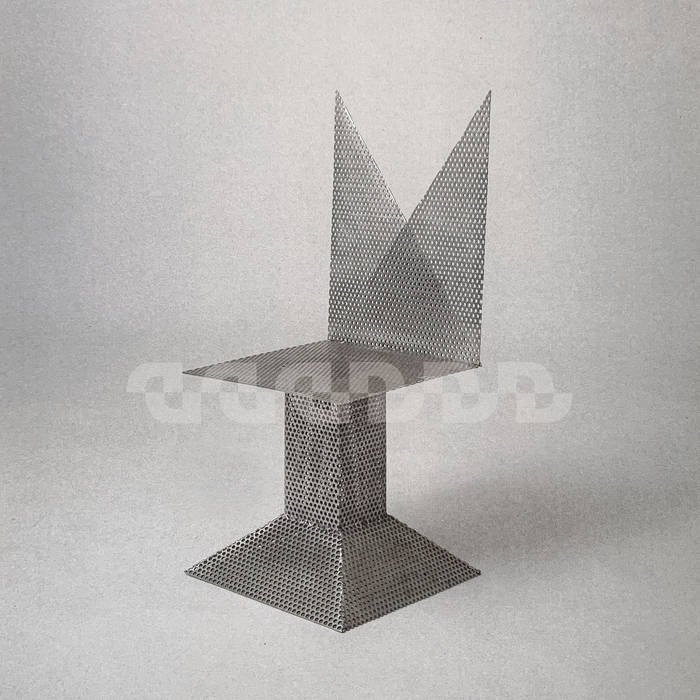by Devin Birse (@devvvvi.b)
When the words “post-punk” are mentioned the adjective “angular” is never far behind. It's easy to understand why, it’s a genre built around cutting guitars and ricocheting grooves, if you listen to it with your eyes closed it begins to resemble a painting from the Russian futurist movement. Endless angles slice in and out of each other to resemble a cascading marriage of shapes. Yet, in recent years post-punk has become more a matter of dancey euphoria or noisy catharsis, but that doesn't mean ice-cold angularity is gone. Rather on Angeltape, Drahla brings back those icy slicing sounds across ten tracks of synchronized post-punk perfection.
Angeltape is first and foremost a ridiculously well-produced slab of wax. Its guitars are razor sharp, its bass bouncing, its drums percussive and piercing, and the blasts of sax hauntingly discordant. The band plays with a tightness that belies nearly a decade of noise making, the rigid grooves of Robb Riggs on bass and Michael Ainsley on drums drive the tracks forward into no-wave nightmare funk territory whilst Luciel Brown's guitar cuts through the rhythms like a hot knife through butter. Brown’s vocals enter the mix as an almost percussive element. Her disaffected spoken word sounds like a languid Lydia Lunch yet the way it bounces off the drums brings comparisons to the pristine post-punk pop of Life Without Buildings’ Sue Tompkins. All these elements come together to give the tracks an unbeatable drive causing not a second to be wasted as they roll through track after track of dance-punk destruction.
This raw drive is what keeps Angeltape sounding fresh at a time when the UK is producing dancey sprechgesang post-punk at near landfill quantities. These tracks feel pristinely constructed, the band whipping through shifts in structure and dynamics with ease. Any brief respite merely acts to give the band time to retract before springing themselves forward like a jack in the box. These sudden dynamic shifts mark out the highlights of the album such as the sudden burst of free jazz sax wrath courtesy of Chris Duffin on “Lipsync” or how when Brown whispers “gravitational pull it just got stronger” midway through “Taking Radiance” the whole track rebuilds itself. The opening minute of languid guitar strokes gives way to a neo no wave free for all. While you know what elements to expect with each track, none of them sound completely alike. They are all made with the same pieces, the core bass, drums, and guitar trio plus sax squalls that lands somewhere between the melodramatic of Tuxedomoon and the mania of James Chance, but the way the pieces are ordered is always different.
At its core, this is an album that doesn’t obfuscate its pleasures. It's sharp, catchy, and biting, incredibly precise in a way that’s never overstated. As odd as it is to say, it's designed to give you a good time. Its grooves are irresistible, its guitars as ice cold as the vocal, with all the elements being pristinely produced. It's not an album that seeks to redefine the genre but rather finds within the sea of sprechgesang slop what makes post-punk so irresistible. Because of this, it might end up being the genre's best effort of the year, combining all the dissonance of no-wave and catchiness of dance-punk whilst never forgetting to keep it tight and focused. It’s a pristine slab of post-punk at its very best.

